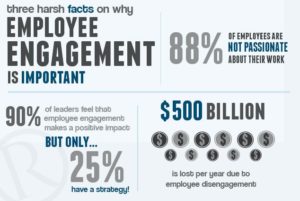These words came to us in 1933 from President Franklin D. Roosevelt as he described the Great Depression. Here’s the whole quote: “So, first of all, let me assert my firm belief that the only thing we have to fear is fear itself – nameless, unreasoning, unjustified terror which paralyzes needed efforts to convert retreat into advance.”
Yes, it’s tough out there. There’s plenty to be concerned about. Yet it’s clearly the leader’s job to keep the team together, even as some things are falling apart. What’s the leader’s biggest challenge? It’s to cultivate a positive attitude of a better tomorrow rather than allowing a culture of doom and gloom. As FDR said, apply efforts to “convert retreat into advance.”
Don’t start, however, by thinking that you, and you alone, have all the answers. You don’t— no one does. I can tell you who has the best answers. It’s the team itself. If you haven’t been leading this way, now is the best time to fully change your leadership style and start encouraging your staff and associates to get involved. It’s time to see them as part of your opportunity, rather than part of your problem.
What’s the benefit of engaging people to do more than just their jobs? It’s huge. Unless you’re living in a cave, you know change is happening at speeds never seen before. Old rules have to be replaced by new rules, new answers, and new solutions. All people are unique with talents that are often overlooked and undervalued. There is no greater waste than that of human potential.

Engage your organization in discovering opportunities for efficiency and innovation, right through to implementation. Click here to learn more about Project WOW and our software that allows you to do it yourself!
Leaders exist to help others tap into this undiscovered potential. To do so, leaders have to let go of thinking that their job is to control and command. These new times require leaders to serve their followers by empowering, freeing and coaching them to make their best choices.
When we do those things, people return the favor by not just doing their jobs, but by doing what’s right. Right means optimally serving the customer, supporting peers and gifting the use of one’s own special talents, creativity, and passion to improve the whole organization.
What might this look like? Like a high-performing team that’s learned to work together to apply its efforts to “convert retreat into advance.”
Retreat is about the past. Advance is about the future. Stay future-focused.
Here’s what makes morale improve:
- A leader who keeps the team focused on future-speak rather than the pains of the past.
- A team that collectively creates a meaningful purpose for the work being done.
- A team that collectively creates four to eight agreed-upon values to guide their behaviors.
- A team that collectively creates a two- or three-year future vision that inspires and pulls people forward.
- A weekly “Where are we going?”, “How are we doing?”, “How can we do better?”, and “Is it fun?” meeting.
You might be saying, “Those are great, but how do we deal with the problems and fears that are pulling us down today?”
Get real. Nothing is pulling us down except how we think. Since we feel the way we think, I want to give you a thinking tool. It’s just one word. The word is “inconvenient.” It’s the best answer to the question, “What if things go wrong?” It will be inconvenient.
Most fears are irrational— False Events Appearing Real. Irrational fears come from irrational beliefs you and your associates create. You can erase and replace that thinking. A situation may not be what you wanted, but it’s something you can handle. We all need to remember that fact.
But what if you lose your job? That would be— now think reality— inconvenient. It wouldn’t be a terrible tragedy and it wouldn’t be the end of the world.
Preach this “inconvenience rule” (an attitude rooted in reality) to all of your associates. This is how we think and who we are when we’re choosing growth over fear, when we remind ourselves every day: “Inconvenience – that’s something I can handle. Now I’ll get on with living.”
_______________________________________________________________________________
Choose growth over fear and discover other strategies that can change how your people think, behave and perceive with our Play to Win workshops! For more information, click here.
